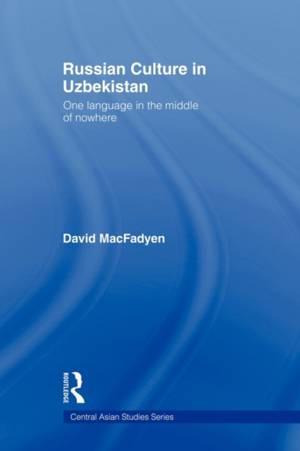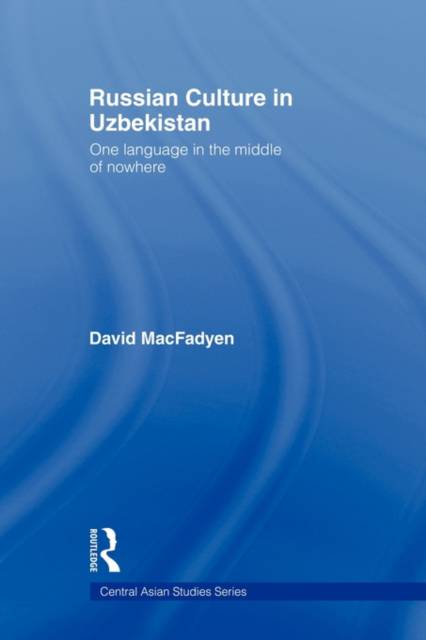
- Afhalen na 1 uur in een winkel met voorraad
- Gratis thuislevering in België vanaf € 30
- Ruim aanbod met 7 miljoen producten
- Afhalen na 1 uur in een winkel met voorraad
- Gratis thuislevering in België vanaf € 30
- Ruim aanbod met 7 miljoen producten
Omschrijving
Recent political changes in Central Asia, where the United States is replacing Russia as the dominant power, are having a profound effect on Russian speakers in the region. These people, formerly perceived as progressive and engaging with Europe, are now confronted by the erasure of their literary, musical, cinematic and journalistic culture, as local ethnic and American cultures become much stronger.
This book examines the predicament of Russian culture in Central Asia, looking at literature, language, cinema, music, and religion. It argues that the Soviet past was much more complex than the simplified, polarised rhetoric of the Cold War period and also that the present situation, in which politicians from the former Soviet regime often continue in power, is equally complex.
Specificaties
Betrokkenen
- Auteur(s):
- Uitgeverij:
Inhoud
- Aantal bladzijden:
- 184
- Taal:
- Engels
- Reeks:
Eigenschappen
- Productcode (EAN):
- 9780415545730
- Verschijningsdatum:
- 1/07/2004
- Uitvoering:
- Paperback
- Formaat:
- Trade paperback (VS)
- Afmetingen:
- 156 mm x 234 mm
- Gewicht:
- 272 g

Alleen bij Standaard Boekhandel
Beoordelingen
We publiceren alleen reviews die voldoen aan de voorwaarden voor reviews. Bekijk onze voorwaarden voor reviews.











